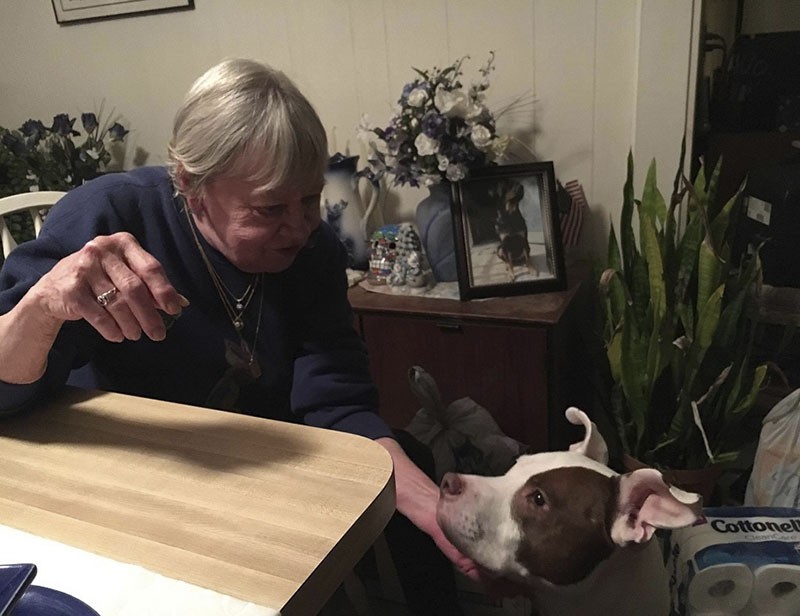Regulation of dog ownership in America goes all the way back to 1897, when federal courts first found that it was constitutional to require owners to license their dogs. The court case behind the legal precedent, Sentell vs. New Orleans and Carrollton Railroad Company, is still relevant today: It found that dogs, because of their "hereditary wolfish instincts," are dangerous.
"Legislation of a drastic nature is necessary to protect persons and property from destruction and annoyance," the decision read. "Such legislation is clearly within the police power of the state. It ordinarily takes the form of a license tax, and the identification of the dog by a collar and tag, upon which the name of the owner is sometimes required to be engraved, but other remedies are not uncommon."
At that point, though, licensing was the main remedy. It wasn't until nearly a century later, in the early 1980s, that breed-specific legislation, or BSL, entered the scene, effectively banning certain dog breeds.
From the beginning, the laws targeted pit bulls. Pits remain the main focus of such ordinances to this day, although some laws also apply to other breeds, most often dobermans and rottweilers.
It's hard to pinpoint the exact cause of the legislative trend; in a legal article on the efficacy of breed-specific legislation, lawyer Linda Weiss argues it was as simple as increased public attention to a number of dog bite cases, several of them involving pit bulls.
"In the early 1980s, a number of fatalities and serious injuries caused by certain breeds, including pit bull dogs, brought to the public's attention a perceived need for more stringent laws governing restraint of dogs," Weiss wrote.
Mandy Ryan, the founder of the pro-pit organization Stop BSL Missouri, thinks pit bulls have an image problem owing to their owners more than their own behavior. In the '80s, she says, the dogs became associated with dogfighting, gang members and drug dealers.
"People started banning them because they didn't want dogfighting in their cities," she says. She finds that wrongheaded: "Really, they're awesome family dogs."
The movement to ban pits only gained steam, however. More than 700 jurisdictions in 42 states and the District of Columbia now have some version of a breed ban or breed-based regulations; fifteen of those have been challenged and upheld in appellate courts.
Missouri lawmakers are more partial to breed-specific legislation than most; a total of 86 jurisdictions in the state have some form of restriction, and all of them include, or are exclusive to, pit bulls, according to the pro-BSL website DogsBite.org. Some of these laws simply declare the breed "dangerous" or "vicious." Others require special licensing for pit bull owners, mandatory sterilization or microchipping.
Earlier this year, a bill was introduced in the Missouri legislature that would have effectively banned the bans, forbidding local jurisdictions from enforcing breed-specific legislation. HB 1811 was championed by members of the anti-BSL Florissant Bully Alliance and its statewide sister group, Stop BSL Missouri.
Activists hired lawyers and spent hundreds of hours lobbying. But while HB 1811 passed the House easily, it never made it out of committee in the Senate.
That's thanks to Senator Brian Munzlinger (R- Williamstown), who retired from the legislature in 2016 due to term limits. He simply refused to schedule the legislation for a vote, which was enough to destroy its chances. (Munzlinger declined to comment on the bill.)
Ryan says the senator offered her the justification that in his opinion, breed-specific legislation is already technically illegal in Missouri, thanks to a statute forbidding the state to "enact any ordinance or promulgate or issue any regulation, rule, policy, guideline or proclamation describing the relationship between persons and domestic animals as other than persons may or can own domestic animals." That was cold comfort to Ryan, though, since it did nothing to stop the bans on the books in Missouri municipalities from continued enforcement.
The bill's sponsor, then-Representative Ron Hicks (R-O'Fallon), agrees that the bill died in Munzlinger's office.
"I had everyone on the House side voting for that bill, and all of a sudden it died in the Senate," says Hicks.
Hicks owns a boxer, another dog breed that is often considered aggressive, and says he is tired of the stereotype that some breeds are inherently more aggressive than others. Enforcement, he says, should be targeted at irresponsible owners, not dogs.
"The more and more people are educated, and the more and more pit bulls that are around, you're going to see less and less aggression," he says.
Hicks says he sees several reasons to stop breed-specific bans like Florissant's. For one, they can be a waste of money; Florissant has spent $6,978.20 euthanizing pit bulls since 2011, according to public records obtained by Ryan's group.

For another, it's difficult for city workers to tell if a dog is a pit bull at all.
Dan Kolde, a lawyer on retainer for Stop BSL Missouri, says this is because pit bulls simply aren't a cohesive breed. The laws often target dogs based on appearance, but Kolde says this is as unconstitutional as a police officer giving you a ticket based on his feeling that you appear to be speeding.
To the American Kennel Club, a "pit bull" is merely the popular term for the American Staffordshire terrier, the American descendants of dogs bred in 19th century England to bait bulls. Nothing in its description suggests violence: "The Am Staff is a people-oriented dog that thrives when he is made part of the family and given a job to do. Regular exercise and training are necessary. They are natural clowns, so they tend to make training comical at times; they like to put a little twist on your training program."
But unlike the AKC's designation, BSL laws generally rely on visual information only. Similar-looking breeds like bulldogs or boxers might not be named in the laws, but owners have to rely on the hope that their neighbors won't decide their dog "looks like a pit."
"There is no such breed as a pit bull, and what does 'look like' mean?" Kolde says. "You can't follow a law like that. From a legal standpoint, what does that even mean?"
Hicks agrees; during the Missouri House hearing on HB 1811, he showed his colleagues pictures of various similar-looking breeds and asked them to identify which ones were pit bulls.
"Ninety-five percent of the people were wrong, and the other five said they guessed and got lucky," he says.
That leaves pit bull owners to face an uneven enforcement of laws and no presumption of innocence, Kolde says; if your dog is thought to look like a pit bull, the assumption is that it is one, and that the ban has been violated.
"The government has just kind of been coming in and bullying people," Kolde says.
Ledy Vankavage, an attorney who helped advocate for HB 1811 on behalf of Best Friends Animal Society, believes that pit bull bans are an infringement on property rights. And while she calls the often faulty visual identification of pit bulls "canine profiling," she says there's another type of profiling at work too: race- and class-based hostility toward the dogs' owners.
"It's oftentimes the other end of the leash," Vankavage says. She believes many of the communities passing pit breed-specific legislation are doing so because they see pit bull owners as predominantly poor and black.
In 2010, when Florissant's pit bull ban was first signed into law, Vankavage testified against it to the city council. The city's former mayor, who is now deceased, tracked her down afterwards to make it clear that while he understood her point, that wasn't what the law was really about, she says.
"We're not doing this because of the dogs," he told her. "We don't want those kind of people moving into Florissant."







